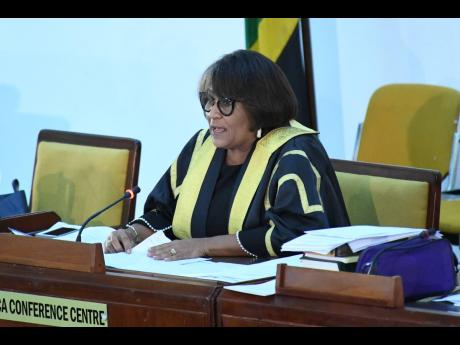MPs fear project delays but Clarke holds firm on PIMS oversight
The often fractious House of Representatives found common ground over concerns about Public Investment Management System (PIMS) oversight of capital projects during Thursday’s deliberations of the Standing Finance Committee when it met to debate the Third Supplementary Estimates tabled two days earlier.
Following the tabling of the report of the Public Administration and Appropriations Committee (PAAC) of Parliament, Opposition Spokesman on Finance Julian Robinson asked Finance Minister Dr Nigel Clarke whether all projects, irrespective of capital size, would have PIMS oversight.
When the answer was in the affirmative, Robinson suggested a tiered structure where expenditure on certain-size projects be exempted. Failure to do so would worsen the administrative bottleneck that is already causing inordinate delays to project execution, Robinson argued.
“We run the risk of applying a level of bureaucracy which is just going to slow down implementation,” Robinson said.
But Clarke defended PIMS as an important oversight mechanism.
“It is a critical and crucial reform that allows for there to be detailed planning and scrutiny for projects to enter the Budget formally,” Clarke said in response.
PIMS is staffed by a department in the Ministry of Finance called the Public Investment Appraisal Branch, which took over from the former Public Investment Management Secretariat.
Citing that capital expenditure has an impact on recurrent spending, the finance minister said that a lack of international best practices had landed the country in problems in the past.
He, however, acknowledged that there was need for more technical investment in ministries to allow for compliance with requirement.
Clarke said that the Management Institute for National Development would provide the requisite training.
But Robinson pressed for further explanation of the blanket PIMS supervision.
“It’s a number of things. It’s making sure that we get value for money for our capital budget ... . We want to make sure that they are properly scrutinised,” Clarke said.
The finance minister maintained that all capital expenditure must be properly assessed before it comes on to the capital budget.
slow roll-out
While not discounting the need for accountability, Government Member of Parliament (MP) Marisa Dalrymple Philibert (Trelawny South) and Opposition colleague Mikael Phillips (Manchester North West), who share constituency boundaries, agreed that the oversight would cause more implementation delays.
Dalrymple Philibert, who is also speaker of the House, said that the lack of progress on projects often leaves parliamentary representatives vulnerable to the ire of constituents who question their performance.
“I am not saying that it is not essential and not an essential point. It just seems from the point of view of an MP, and we know the impact and the projects that are in, that we are adding another layer of bureaucracy when, in fact, we ought to be trying to cut back on bureaucracy ... ,” said Dalrymple Philibert.
She said when projects are put into capital expenditure, constituents question why MPs cannot deliver on promises.
“That is a major problem that we, as politicians, as representatives, face,” she said.
Phillips said it was important that increased oversight would not exacerbate inefficiency.
While saying he appreciated their concerns, Clarke remained firm that the oversight was a requirement of the Financial Administration and Audit Act (FIAA).
Meanwhile, there may be delays to the full roll-out of the National Identification System (NIDS), largely because of setbacks in procurement of key equipment for the modernisation of the Registrar General’s Department.
Minister without Portfolio Floyd Green, who is leading the programme, said that some aspects of the roll-out were still on track and that some cards would be issued by the second half of the year.
Robinson also questioned the reduction by $300 million in financing access to funding for small and medium enterprises as well as how much of the current increased revenue projections of $28 billion represented savings from allowances that have now become taxable.
Clarke said he could not provide specifics but noted that higher salaries meant increased tax revenue.

